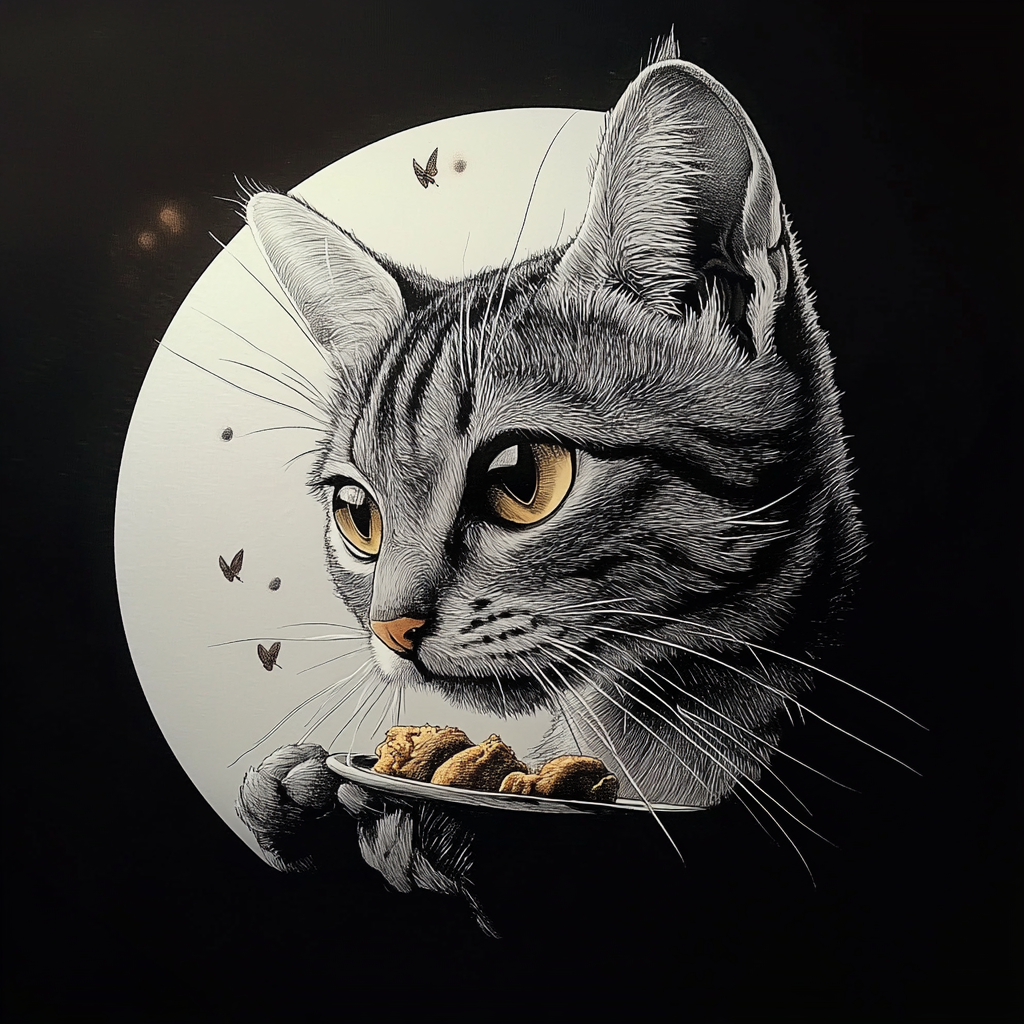
🐱 Cat Nutrition: Tips for a Healthy (and Totally Adorable) Life
Share
We all want our whiskered companions to live their best lives — full of energy, silky fur, and purrs on demand. And guess what? A big part of that dreamy cat life starts in the food bowl. Feeding your cat the right way isn’t just about keeping them full — it’s about helping them stay healthy, happy, and ready for every nap and zoomie ahead.
What Do Cats Really Need to Eat?
Let’s get this straight: cats are not tiny dogs. They’re obligate carnivores, which means their bodies are designed to thrive on meat, meat, and… more meat. Their little systems need loads of animal protein — think chicken, fish, or beef — because that’s how they get important stuff like taurine. Taurine is basically a superhero amino acid for cats. It helps with their heart, vision, nerves — the whole package.
Fats are important too, but not just any kind. Cats need certain fats from animal sources to keep their coats shiny, their skin healthy, and their energy levels zooming. And when it comes to vitamins and minerals, they’re a bit picky — they can’t turn plant stuff into the nutrients they need. That means their food has to deliver the good stuff directly, no shortcuts.
And let’s not forget water! Cats come from desert-dwelling ancestors, so they’re not the best at remembering to drink. That’s why moisture-rich food can be a game-changer — especially for the floofs who ignore their water bowls like they ignore closed doors.
Dry vs Wet Food: What’s the Deal?
It’s a common cat parent dilemma: should I go with dry food or wet food? The answer is… a little of both can be puurrrfect.
Dry food, or kibble, is super convenient. It’s tidy, lasts longer, and gives your cat’s teeth a little workout. But it’s low in moisture, and that can be a problem for kitties who aren’t big drinkers. Wet food, on the other paw, is super hydrating and smells way more exciting to picky eaters. It’s often the go-to for cats with kidney or urinary issues — or just cats who like their meals juicy and gourmet.
Mixing both types can keep things balanced and exciting, like a little tasting menu for your cat chef.
How Often Should You Feed Your Cat?
In the wild, cats don’t eat two big meals a day. They snack… constantly. Tiny prey here, a surprise mouse there. That’s why most cats love having several small meals throughout the day.
If you can, split their food into mini-meals — or use an automatic feeder to keep the buffet open while you’re out. Kittens often need access to food more often, while adult cats might benefit from a set schedule (especially those who’ve gotten a bit… fluffy).
Food Troubles You Might Run Into
Let’s be real — sometimes food causes drama. Some cats are prone to urinary issues, especially if they eat high-mineral food and don’t hydrate enough. Others gain weight faster than you can say “treats!” Indoor cats especially can get chonky if they’re not moving much and eating too freely.
And just like people, some cats can be sensitive to certain ingredients. If your cat is throwing up, has weird poops, or is scratching more than usual, they might be reacting to their food. A quick chat with your vet can help sort it out and guide you toward a diet that suits your little diva.
What Should Never Go in Your Cat’s Bowl?
Cats are curious, sneaky, and not always the best judges of what’s edible. Some foods that are totally fine for humans are a big no-no for cats.
Chocolate, for example, is a huge danger — even a little bit is toxic. Onions and garlic can mess with their blood cells. Alcohol? Hard pass — even a sip is way too much. And that old cartoon about cats loving milk? Not true for most adults — a lot of cats are lactose intolerant, so milk can leave them with a very upset tummy.
Do Cats Need Supplements?
Sometimes! Older cats or cats with specific health needs might benefit from omega-3s or other supplements to keep their joints, hearts, or fur in tip-top shape. But before adding anything fancy to their food, it’s best to check with your vet. Too much of a good thing can still cause problems.
In Conclusion: Feed with Love (and Science)
Feeding your cat the right way is one of the biggest acts of love you can give. With the right balance of nutrients, tasty meals, and a feeding schedule that fits their style, you’re setting them up for a long, healthy life full of cuddles, mischief, and contented naps.
And remember — every cat is unique. What works for one floof might not work for another. So pay attention to how your cat eats, how they act, and don’t hesitate to ask your vet for advice if something feels off.
A happy tummy makes for a happy kitty. And a happy kitty? That’s the best kind of magic.
